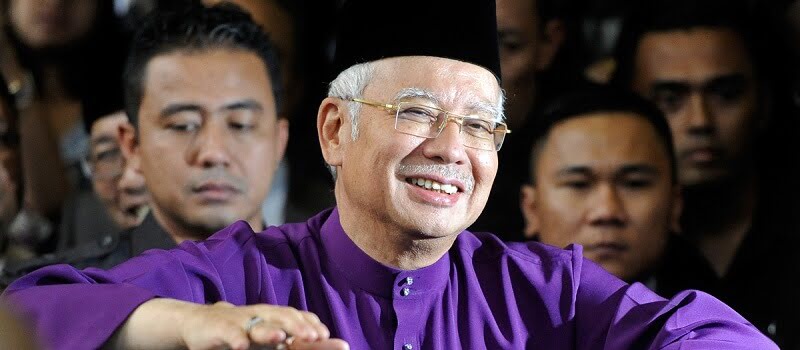
The Prime Minister Datuk Seri Najib Tun Razak recently announced that the Malaysia’s 2016 Budget will be “recalibrated” on January 28 to reflect the current economic climate.
The Prime Minister said the adjustments are necessary to ensure that the projections are accurate, realistic and according to the current economic situation.
Changes would include additional measures to optimise expenditure and the role of Government-linked companies.
Why do we need a budget recalibration?
Budget 2016 Malaysia was tabled on October 23 last year when Brent oil price was at US$48 per barrel, and estimated a revenue of RM225.7 billion for 2016.
The objectives include to achieve a 3.1% fiscal deficit target and to hit a 4% to 5% Gross Domestic Product (GDP) growth this year.
Unfortunately, Brent oil price has since fallen to around US$30 per barrel (at this point in writing), resulting in an obvious mismatch between initial expectations and current realities in terms of revenue collection.
According to Dr. Yeah Kim Leng, Dean of the School of Business at the Malaysia University of Science and Technology (MUST), the plunge in world oil price could result in a revenue shortfall by as much as RM8 billion to RM10 billion. This is assuming that production level remains about the same as 2015 and that dividends from Petronas and the Ringgit exchange rate are not reduced too drastically, he explained.
“The budget recalibration basically means reducing spending to match lower projected revenue so that the government does not miss the 3.1% fiscal deficit by too much,” Dr. Yeah told iMoney.
“It also means reprioritising spending so that the negative effects of the spending cut on growth and jobs can be minimised,” he added.
What does this mean for the economy and the people?
Budget 2016 allocated a total of RM267.2 billion, out of which RM215.2 billion was for operating expenditure and RM52 billion for development expenditure.
The restructured national budget will obviously mean more expenditure cuts and reduced public spending, but what does this really mean for our initial fiscal deficit and GDP growth targets?
“Any spending cuts will have a dampening impact on jobs, income and overall GDP growth. A RM10 billion reduction in government spending to achieve the fiscal deficit target of 3.1% will shave slightly less than 1% off GDP growth,” Dr. Yeah opined.
However, Dr. Yeah said he does not expect the expenditure cuts to be too drastic, citing that Datuk Seri Abdul Wahid Omar recently clarified that the recalibration of Budget 2016 would not be an austerity measure.
That said, there have been some concerns that spending cuts in the recalibrated budget would come at the expense of the people’s interest. For instance, the 2016 budget announcement witnessed some rather drastic cuts in the healthcare and education coffers.
Last week, the government announced the suspension of the Public Service Department (JPA) Scholarships for degree courses and the Education Ministry’s bursary for pre-university programmes amid falling national revenue – a decision that was met with public outcry.
However, Minister in the Prime Minister’s Department Datuk Seri Dr Wee Ka Siong later said that only those who received the national bursary in 2014 were affected. He added that the JPA had yet to make an announcement on the matter.
Meanwhile, Deputy Education Minister P. Kamalanathan told The Star while the decision to adjust the national budget was not easy, it was necessary for the well-being of the nation.
Several ministers, including Rural and Regional Development Minister Datuk Seri Ismail Sabri Yaakob and Urban Wellbeing, Housing and Local Government Minister Datuk Abdul Rahman Dahlan have pledged to review their ministry budgets to make more savings.
“At the end of the day, it is a balancing act between the amount to cut and how much growth needs to be sacrificed. A silver lining is that the government will have to become more effective with their spending,” Dr. Yeah pointed out.
Will it really help the Government achieve its fiscal deficit and GDP targets?
According to the Prime Minister, recalibrating Budget 2016 is a proactive measure by the Government to ease the pressure on the economy caused by the fall of oil prices and to ensure that the people are not burdened by it.
But in reality, even with the budget recalibration, there is no guarantee that adjustments will ensure that the Government stays on track its fiscal deficit and GDP targets.
As Dr. Yeah pointed out, “Although a RM10 billion shortfall is projected, there remains some uncertainty over this estimate, as it is also dependent on the amount of dividends that Petronas can afford to give, the Ringgit exchange rate, and other tax revenue sources that could be affected if growth slows down substantially. We will have to wait for the official announcement to have a better idea of the likely shortfall.”
He added with optimism, “Although meeting the 3.1% deficit target is desirable, a slight deviance may not disrupt market confidence especially if growth can be maintained. For this, the government will have to show that it can achieve more with less.
“A higher collection from GST may also help offset the oil revenue shortfall. Meanwhile, deferring some development projects may help the Government meet the fiscal deficit target without affecting growth too severely,” Dr. Yeah said.
Is there a light at the end of the tunnel?
In general, the outlook for crude oil price and the Ringgit looks pretty bleak for 2016. However, experts are of the opinion that Ringgit will likely ease and bottom out against regional peers by the second half of the year.
Dr. Yeah estimated that crude oil price is likely to hover between US$30 to US$35 per barrel with a greater downside risk due to oversupply. This includes additional production from Iran as sanctions have been lifted, as well as the generally weak global demand.
“Unless the deceleration in Chinese economy as well as other large emerging economies are arrested, the crude oil price outlook appears downbeat but that should be good for consumers,” Dr. Yeah added.
The bad news is, while oil prices have already taken a dramatic fall – approximately 70% from its peak at US$100 per barrel – a further decline is possible and the repercussions would be huge and detrimental to the local economy.
Investment banking firm Goldman Sachs stirred energy investors late last year when its head of commodity research warned of risks that oil prices could fall as low as US$20 per barrel. Meanwhile, Standard Chartered became the latest major bank to downgrade its oil outlook to US$10 per barrel in January.
Because the Ringgit is tied directly to oil price, it will likely hover between RM4.10 to RM4.30 against the US dollar in 2016 unless there is significant improvement in the crude oil price, the Chinese economy, as well as the risk premium associated with the ongoing domestic political factors, Dr. Yeah concluded.
Whichever way you look at it, it doesn’t sound great for Malaysians. However, let’s wait for the announcement of the recalibrated Budget 2016 before we form our opinion.




